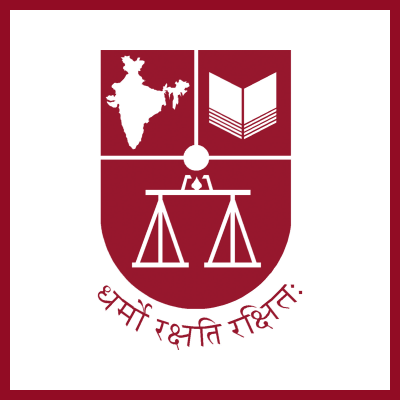Postgraduate Diploma inArbitration Law(PGDAL)
Overview
The introduction of the Postgraduate Diploma Programme in Arbitration Law (PGDAL) aims to equip students with a deep understanding of arbitration law and practice, which is increasingly important to addressing the evolving complexities of the legal industry and in resolving commercial disputes globally. This programme underscores the importance of specialized legal training in today’s fast-paced and intricate legal environment, empowering professionals with the expertise needed to navigate and excel in the field of arbitration law. The program aims to equip participants with the necessary knowledge and skills to excel in the field of domestic, international, and investment arbitration.
The program aims to equip participants with the necessary knowledge and skills to excel in the field of domestic, international, and investment arbitration. The programme will motivate individuals seeking to enhance their expertise in Arbitration.
Programme Highlights:
- • Understand the fundamental principles of arbitration.
• Comprehend the arbitration process and the legal framework governing it.
• Evaluate judicial oversight of arbitration.
• Analyze arbitration agreements.
• Examine jurisdictional issues.
• attract motivated individuals seeking to enhance their expertise in arbitration.
Courses
Course 1: Introduction to Law & Legal Systems
This paper introduces the student to legal thinking and reasoning, and to legal systems, with a particular focus on Indian law and the Indian legal system. Those students who are from a non-law background would find this course particularly helpful.
Course 2: Law and Practice of Arbitration in India
This paper consists of the following modules:
Module 1: Introduction to Arbitration: Fundamentals and Key Concepts
Module 2: Appointment of Arbitrators: Procedures and Judicial Role
Module 3: Arbitration Tribunal: Composition, Powers, and Procedures
Module 4: Court Supervision in Arbitration: Reference to arbitration and Interim
Module 5: Arbitral Awards: Status, Challenges, and Judicial Recourse
Course 3: International Commercial Arbitration
This paper consists of the following modules:
Module 1: Overview of International Commercial Arbitration
Module 2: International Arbitration Agreements
Module 3: International Arbitration Proceedings
Module 4: Judicial Review of Arbitral Awards
Course 4: Methods and Principles of Investor State Arbitration
This paper consists of the following modules:
Module 1: Introductory Framework to Investment Treaty Dispute Settlement
Module 2: Substantive Protections in Investment Treaty Law
Module 3: Enforcement of Investment Awards and the Future of ISDS
Faculty

Associate Professor of Law

Assistant Professor of Law

Assistant Professor of Law
Fee
For Indian Nationals
| Regular Fees | |
| Application Fee | Rs. 2,000 |
| Admission Fee | Rs. 3,000 |
| Course Fee | Rs. 48,800 |
| Examination Fee | Rs. 3,200 |
| Total fees | Rs. 57,000 |
| Other fees | |
| Admission late fee | Rs. 500 |
| Continuation fee | Rs. 3,500 per year |
| Extension fee | Rs. 6,000 per year |
| Re-evaluation fees | Rs. 900 per paper |
For Foreign Nationals
| Regular fees | |
| Application Fee | Rs. 2,000 |
| Admission Fee | Rs. 3,000 |
| Course Fee | Rs. 1,44,800 |
| Examination Fee | Rs. 3,200 |
| Total fees | Rs. 1,53,000 |
Apply
Please note the following information regarding eligibility and the mode of applying for this programme.
Eligibility
The minimum eligibility for applying for this programme is a graduate degree (in law or other fields) from a recognized university.
Students with a degree certificate or its equivalent from any UGC-recognized university, Association of Indian Universities, CA, CS, ICWA, Open University/distance learning can apply. There shall be no restriction as to age, nationality, gender or employment status.
Important Dates
- Application deadline for AY 2024-25 has been extended till September 22, 2024.
- Please note that the programme fees will have to be paid by September 24, 2024.
- Classes will begin from September 28, 2024.
Applications can be filled out online at the URL: https://paceadmissions.nls.ac.in
For admission-related queries, please write to admissions.pace@nls.ac.in
FAQs
These are some commonly asked questions about this programme. For general questions about the NLSIU Distance Progamme, please visit the General FAQs page.
How many years does a student have to complete a programme?
Students of the Diploma programmes can complete their programme in up to five years from the year of their enrolment.
Students are required to pay the prescribed fee at the time of admission. If a student has to continue the programme beyond one academic year because of non-fulfilment of the prescribed requirements for the award of the diploma, they will be permitted to continue for the subsequent two academic years by paying a continuation fee as prescribed for each year.
After a period of 3 years if the student is unable to clear the programme they may be given an extension of another 2 years by paying Rs. 5000 per year for the subsequent two years as extension fee, provided they have cleared 2 out of the 4 courses in a Diploma programme. At the end of the fifth academic year, if the student is unable to complete the requirements for the award of the diploma, the admission stands automatically cancelled.
What if the candidate does not complete the course in 3 years?
If the candidate does not pass or complete the course, his enrollment ceases. He will have to register afresh by following the usual procedures prescribed for first admission. His performance at the earlier exams is not carried forward. He will have to redo the entire academic exercise prescribed, in the syllabus.
What is the scheme of Assessment?
Every course shall have a combination of formative and summative assessments. This will aid in regular learning and understanding concepts better. Please note the following details regarding the upcoming assessments: Assessment Details:
| Sl. No | Assessment Type | Assessment Pattern | Marks Allotment | Mode | Enrollment Fee |
| 1. | Formative I | MCQs | 20 Marks | Online | INR. 200/- |
| 2. | Formative II | MCQs | 30 Marks | Online | INR. 200/- |
| 3. | Summative | Subjective | 50 Marks | In-person | INR. 300/- |
What is Grading Mechanism?
To successfully complete a programme, a student must take all three assessments (Formative I + Formative II + Summative) and obtain a cumulative grade point average (CGPA) of three and above out of seven. An aggregate of your performance will count towards the final grade in each course.
| Grade | Grade Description | Grade Point | Percentage of Marks |
| O | Meets the highest standards for the assignment or course | 7 | 70% and above |
| A+ | Meets very high standards for the assignment of course | 6 | 65% to 69% |
| A | Meets high standards for the assignment or course | 5 | 60% to 64% |
| B+ | Meets most of standards for the assignment or course | 4 | 55% to 59% |
| B | Meets basic standards for the assignment or course | 3 | 50% to 54% |
| C+ | While acceptable, falls short of meeting basic standards in several ways | 2 | 45% to 49% |
| C | Lowest passing grade | 1 | 40% to 44% |
| F | Failing, very poor performance | 0 | Less than 40% |

Admission Status
CLOSED
Duration
1 Year
Number of Courses
4
Course Fee (Indian Nationals)
Rs. 57,000/-
Course Fee (Foreign Nationals)
Rs. 1,53,000/-
